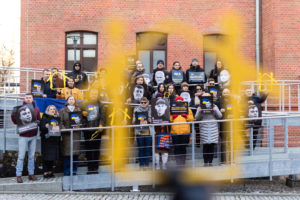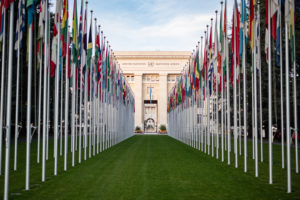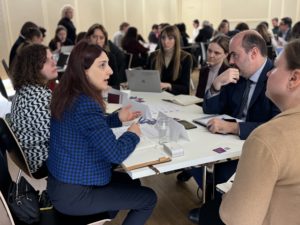
Human rights defenders
Human rights defenders work to improve societies and contribute to peace and democracy. Defenders are agents for positive change and development. They are key in protecting against human rights violations and in advancing universal human rights.



Human rights defenders
Anyone, regardless of their occupation, can be a human rights defender; they are identified primarily by what they do rather than by their profession. Some human rights defenders are professional human rights workers, lawyers working on human rights cases, journalists or media workers, trade unionists or development workers.
Other human rights defenders are not earning revenue from their work in favour of human rights. Active in every part of the world, human rights defenders mostly work at the local or national level, supporting respect for human rights within their own communities and countries. Some also work to engage with the international community on human rights, advocating at the United Nations, regional bodies such as the European Union or Council of Europe, and in State capitals.
The right to be a human rights defender ensures they are able to carry out their work unhindered, and under the protection of national law if needed. It includes work on all human rights, and choice of method, whether it is advocating for human rights through peaceful protests or social media, establishing human rights organisations, working on legal cases, or any other non-violent means.
“I deeply admire the courage and sacrifice of human rights defenders. These individuals and organisations are our eyes and ears and conscience.”
UN Secretary General António Guterres.
This right requires the enjoyment of many other rights, principally the fundamental rights to expression, association, and assembly, but also to many others.

Our position
Threats, intimidation, attacks, criminal charges, and restrictions against human rights defenders are increasing in many parts of the world. Both State and non-State actors are seeking to shift the narrative on human rights defenders from protector of the people to enemy of the State, and the essential work of defenders is impeded by systematic and deepening restrictions on fundamental freedoms and foreign funding.
Human Rights House Foundation (HRHF) believes it is essential to reverse this narrative, and to increase understanding and national implementation of international standards that protect and support human rights defenders. More work is needed on implementation and on closing the gap between agreed norms and the realities on the ground.
The context is that while the situation has deteriorated for defenders, international standards have been strengthened in recent years. Following a series of significant resolutions since 2013, the UN adopted, by consensus, a 2017 resolution aimed at celebrating the essential role and work of human rights defenders.
These trends are of course connected: the more threats and restrictions, the greater the need for a response from the international community, with this coming in the form of standards and principles to protect defenders.
Yet this has led to a situation where States increasingly adopt texts in support of human rights defenders internationally, with governments often curtailing the activities of defenders back at home. This is a challenge of implementation – bringing international standards home – that continues to be core to the work of Human Rights Houses and HRHF.
The 2017 resolution sets the scene to praise human rights defenders, but it is also an opportunity to consider the protections afforded to human rights defenders, and to strengthen the implementation of them in each and every country. This is an opportunity that human rights defenders and civil society must grasp with both hands.
“At a time when human rights defenders are being attacked, harassed and stigmatised around the world… we should pay tribute to these thousands of men and women to whom we owe so much.”
UN Special Rapporteur on human rights defenders, Michel Forst.
The consensus vote provides significant legitimacy to international and domestic activities to promote the work of human rights defenders, including with governments who can be hostile toward the issue. Put another way, activities relating to defenders should now have greater support at national level, given all governments have given their support to the resolution at international level.

Rights of Defenders
HRHF’s Rights of Defenders project identifies 16 standards related to the rights of human rights defenders. These 16 standards are informed by the UN Declaration on Human Rights Defenders and relevant landmark international resolutions.
Read more about the 16 international standards.






